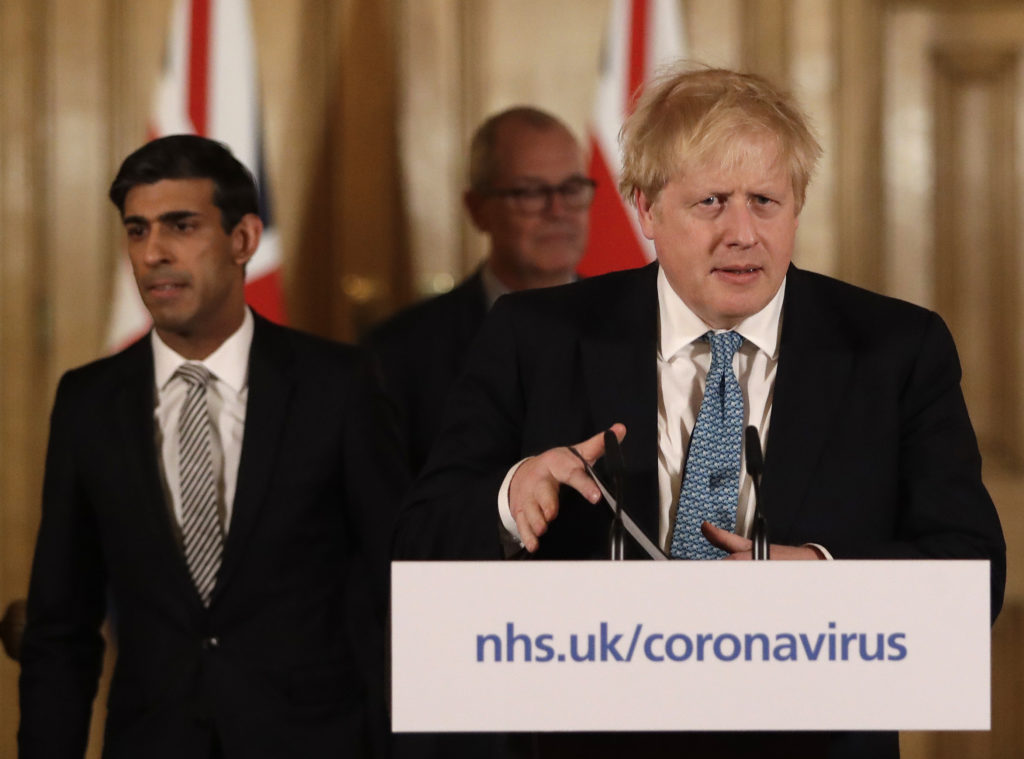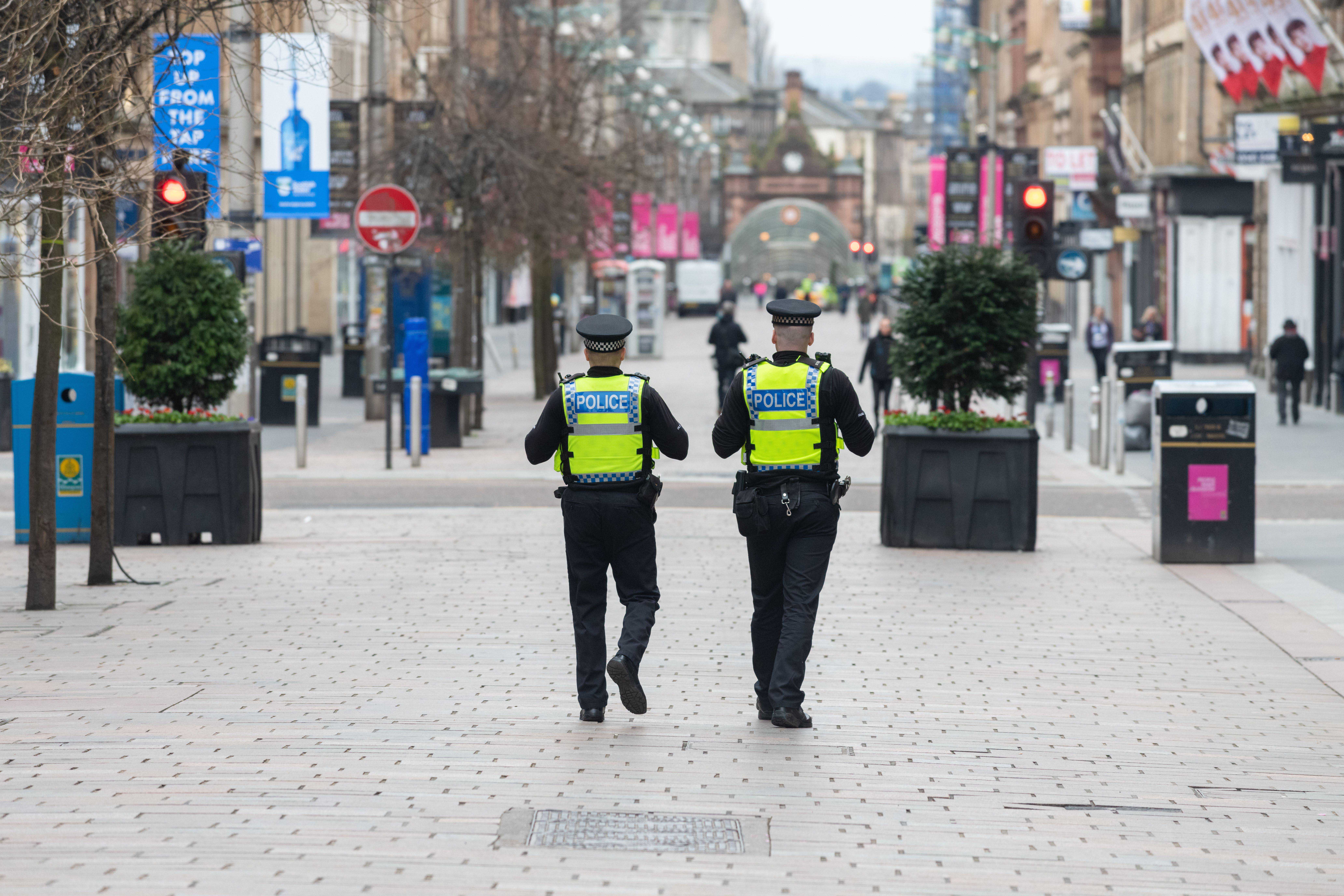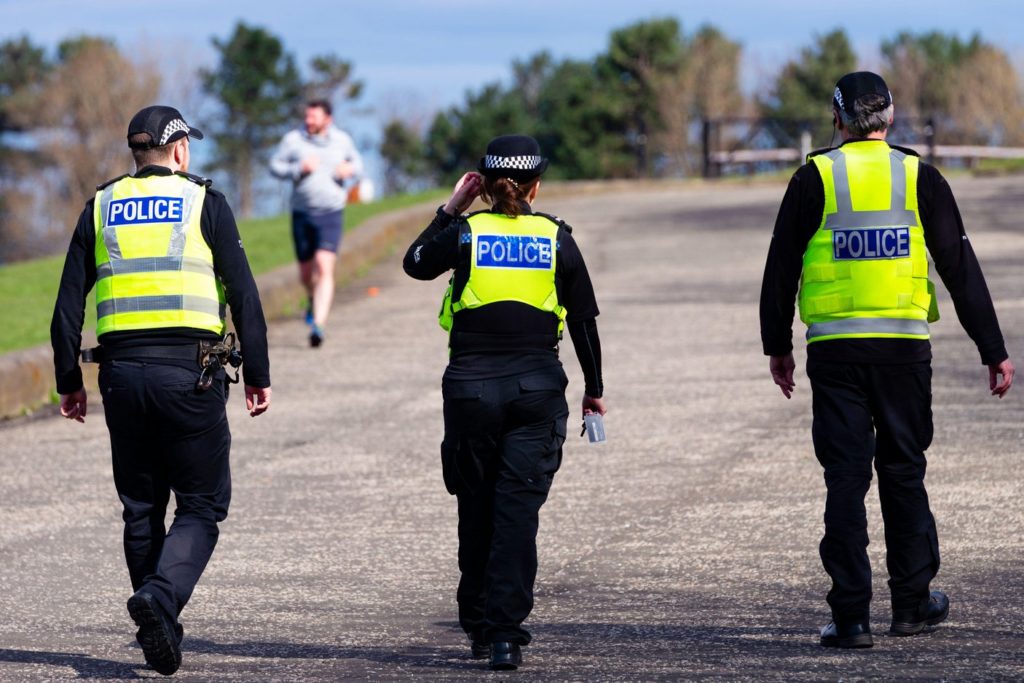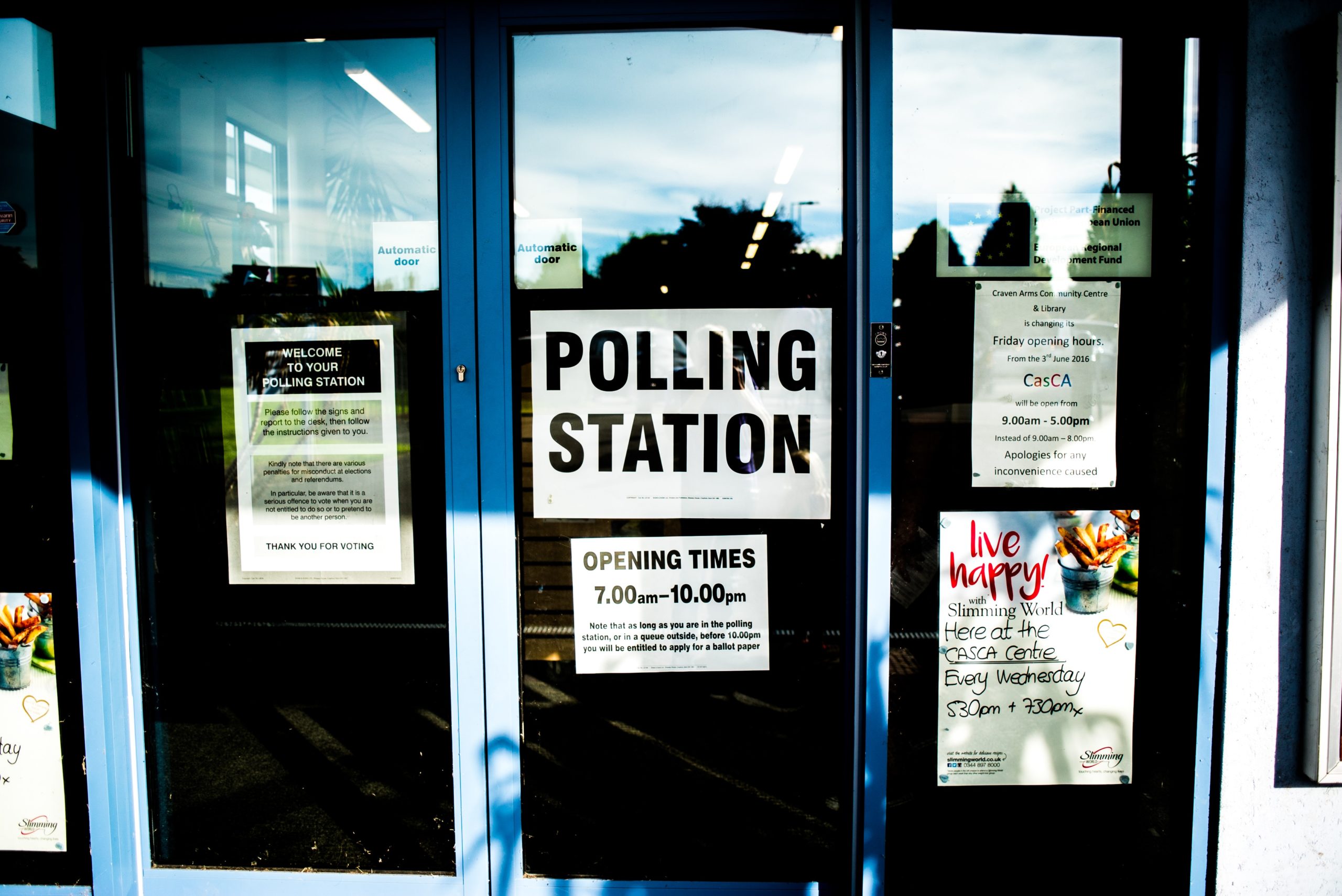Coronavirus
The Coronavirus Act – new powers for government
Posted by Mirren Gidda on 16 Apr 2020
As outbreaks of COVID-19 swept westwards into Europe, the UK government began drafting legislation containing what Health Secretary Matt Hancock described as “extraordinary measures”. In just four sitting days, the Coronavirus Act cleared parliament with substantial cross-party consensus in both Houses of Parliament. A document 342 pages in length, it grants the UK government extensive powers never before seen in peace time.
The Act primarily gives new powers to various public bodies to help them combat the pandemic, while also putting in place measures to financially support UK citizens. However, multiple human rights groups, among them Amnesty, Liberty, and Human Rights Watch, have expressed serious concerns at some of the powers contained in the Act, and the disproportionate impact those powers could have on marginalised groups. Almost all of the provisions in the Act are time-limited for two years, although there is the potential to extend them for longer. During the passage of the Act, the government conceded six monthly reviews on the non-devolved parts of the bill, but concerns remain about scrutiny and accountability.
Much of the Act’s content lies in the 29 schedules at the end of the document, some of which require the Secretary of State to trigger them into law. Among the schedules are provisions around the emergency registration of medical professionals, entitlements to emergency volunteering leave, and a three-month protection for renters from eviction. Some of the other schedules, however, pose a serious threat to existing civil liberties and alter legislation designed to protect particular groups.

Boris Johnson at a media briefing, 17 March 2020

Police patrolling Glasgow city centre enforcing coronavirus lockdown
Mental Health
The NHS has already published advice about how coronavirus and lockdown could impact people’s mental health. It is likely that the pandemic will cause more people to try to access mental health support, putting additional pressure on an overburdened health system. Schedule 8 of the Coronavirus Act seems to be an attempt to free up health resources, although it also removes safeguards for mental health patients and alters existing legislation.
Under Schedule 8, people in England and Wales can now be compulsorily admitted to hospital for assessment and treatment by just one medical professional, lifting the restriction that a sectioning had to be authorised by two practitioners, if obtaining a second recommendation is “impractical or would involve unnecessary delay”. This change has similarly been applied to the non-consensual provision of medication and the detention of accused and convicted people in hospital.
In a change that has particularly alarmed mental health organisations, accused and convicted people can now be held in hospital for an indefinite total period of time, although in stretches of no longer than 28 days. In a statement, Vicky Nash, Head of Policy and Campaigns at the mental health charity Mind said: “The last thing we want to see is people left languishing in hospital without regular reviews of why they’re there or proper representation and advice, particularly amidst such high demand on hospital beds.” Accused and convicted people will also have to wait longer to access mental health support; the Act extends transfer times to hospital from 14 days to 28 days.

The last thing we want to see is people left languishing in hospital without regular reviews of why they’re there
In Scotland and Northern Ireland, similar easing and extensions have been authorised. In Scotland, short-term mental health detentions can be authorised by any medical practitioner without checking with a mental health officer, while assessment orders, which authorise someone’s detention in hospital, can be extended from 14 days to 12 weeks. In Northern Ireland, once a patient has been assessed and a medical practitioner has provided a report, they can be detained for a further 21 days, up from seven. As in England and Wales, accused and convicted people who need mental health treatment may also have to wait 28 days, up from 14 days, to be transferred to hospital.
Police Powers
Since the UK went into lockdown, there has been extensive media coverage of what has been criticised by the rights groups Netpol and the Undercover Research Group as disproportionate policing. These include instances such as Derbyshire police flying drones over the Peak District or a branch of the Metropolitan Police tweeting that they felt like “kids at Christmas” with new legislation to play with.
Police arrested Marie Dinou, claiming she was “loitering between platforms” but later admitted that they were wrong to arrest her
Much of the coverage, however, has been around the Health Protection (Coronavirus, Restrictions) (England) Regulations 2020, which came into force on 26 March and are separate to the Coronavirus Act. Schedule 21 of the Act affords the police widespread powers to detain people they suspect of having coronavirus for screening and assessment. Although testing must be done by a public health officer, the police are able to hold someone for 24 hours before the officer arrives, and this can be extended by a further 24 hours if necessary. Police officers are also supposed to consult a public health officer before acting, although this requirement can be waived if it’s not practicable to do so. It’s unclear if public health officers were contacted in the case of Marie Dinou, a black woman who was incorrectly arrested at Newcastle Central Station and charged under Schedule 21 after she refused to tell them her reasons for travel. Police claimed she was “loitering between platforms” but later admitted that they were wrong to arrest her as they did not believe she was infectious.
If a person has been assessed by a public health officer and found to be “infected or contaminated with coronavirus” or if the results are inconclusive, the officer can authorise police or immigration officers to detain them for 14 days, which can be extended by an additional two weeks. In cases where someone has been ordered to remain in isolation, there is no limit as to how long they can be forced to do that for. Police and immigration officers can use “reasonable force” to ensure compliance with this, while police can additionally enter any place without permission in accordance with Schedule 21. Failure to comply with any direction is considered an offence, which could result in court action. The schedule is also applicable to children.

Police patrol a public park
Social Care
Schedule 12 of the Coronavirus Act is concerned with social care, and it has attracted significant legal attention for the widespread suspension of key duties under the 2014 Care Act. Local authorities do not need to comply with Care Act duties to assess needs, nor meet them, unless that would be a breach of the service user’s or carer’s human rights. Similarly, local authorities need not prepare care and support plans, continue providing care to someone who is moving, or provide care to someone transitioning from children’s care to adult care. In Wales, local authorities similarly do not need to meet the needs of adults or their carers, unless the latter is at risk of abuse or neglect. As in England, Welsh authorities do not have to continue providing care if someone moves nor prepare care and support plans. In Scotland, restrictions have similarly been relaxed on assessing carers’ needs and providing support plans.
Although guidance on the legislation states that it should be “used as narrowly as possible”, it has caused concern among people in need of care that they could be abandoned or exposed to abuse. In a note on the Coronavirus Act, the barristers’ set 39 Essex Chambers wrote: “It is easy to imagine that people being forced to stay at home all the time, perhaps with additional people in the household, and with scarce resources either because of loss of income or product shortages, are more vulnerable to abuse of all kinds… So, although the law is aimed at reducing the [State’s] obligations, in fact the circumstances may be intensifying them.”
Elections Postponed
The current restrictions on large gatherings and non-essential travel pose an obvious challenge to any planned elections. Under the Coronavirus Act, the government has postponed a series of ballots due to take place across England and Wales on 7 May. The votes, which have been delayed for a year, include local council elections in England, mayoral elections, including the London mayoral election, and elections for police and crime commissioners in England and Wales. Any other elections or referendums that happen to fall within the period 7 May 2020 to 5 May 2021 (such as elections to fill vacancies) can similarly be postponed to 6 May 2021.

Elsewhere, recall petitions, which can be used to force suspended or convicted MPs from their seats can also be postponed until 6 May 2021, potentially keeping them in office for longer. Northern Ireland’s canvass, a process held every decade to create an up-to-date electoral roll, has also been postponed until 2021.
Surveillance and National Security
Across the world, governments are preparing for challenges to national security that are as yet unknown. This is reflected in the Coronavirus Act, which grants new powers to intelligence agencies and the Secretary of State. Published guidance on the Act states that: “Maintaining national security capabilities at a time of potential widespread upheaval is critical.”
The bulk of the changes are around the issuing of surveillance warrants, which, under the Investigatory Powers Act have to be approved by judicial commissioners—a group of senior legal professionals who are independent of the government. Under the Coronavirus Act, temporary judicial commissioners can be appointed in situations where there is a shortage of official commissioners, something that the Investigatory Powers’ Commissioners Office (IPCO) asked the Home Secretary to authorise one day after the Act passed. In a letter IPCO said that temporary commissioners would be needed since all but two of the incumbent commissioners are over 70 and thus self-isolating at home where they lack the secure facilities to read and approve warrants.
Although the legislation seems mainly written to address staffing shortages, the wording is vague enough that it seems to also apply in cases where the issuing of warrants has increased and more commissioners need to be appointed to deal with the added workload. When asked by Liberty Investigates about this, a spokesperson for IPCO indicated that more commissioners could be hired beyond the usual 13. “It is the case that the power could be exercised in the event that further capacity was required. However, the decision as to the number of temporary Judicial Commissioners will take account of a number of factors, including the ongoing deployment requirements for the senior courts across the UK,” IPCO wrote.
Any temporary commissioners can be in post for six months at a time, serving a total time period of a year. Extensions have also been made to the consideration of urgent warrants with judicial commissioners having 12 working days, up from three, to decide whether to approve an urgent government surveillance request. During this 12-day period, the warrant will be active and surveillance will occur, although if the commissioner denies the warrant, this will cease. IPCO told Liberty Investigates that it should be told immediately when such a request is issued and surveillance begins, but that, due to paperwork delays, this isn’t always the case.
The Coronavirus Act authorises the Secretary of State to prolong the retention of people’s fingerprints and DNA profiles
The Coronavirus Act also authorises the Secretary of State to prolong the retention of people’s fingerprints and DNA profiles in cases of national security. These extensions can be for six-month periods, but not total more than a year.
Port and Border Closures
The Coronavirus Act grants the Secretary of State new powers to suspend port operations, if they feel that there are insufficient border force officers to maintain security. Under Schedule 20, seaports, airports, and international rail terminals can be closed for an initial six hours, then a further six hours, and then periods of 12 hours. If a port official fails to comply, they can be sentenced to prison.
Deaths
Estimates vary for the number of people who could die from coronavirus. (At the time of writing, 13,729 people had died in the UK from COVID-19). Accordingly, the Coronavirus Act includes several provisions around deaths, including changes to how deaths are registered, the review of death certificates, and how information on deaths is shared.
Most of the changes have been made to ease pressures on medical professionals and allow for remote communications. One change that has sparked concern, however, is around the classification of COVID-19 as a non-notifiable disease. Under existing legislation, inquests with juries need to be held into deaths in custody from notifiable diseases, a category that normally includes COVID-19.
Deaths in custody will not be subject to inquest with a jury, as COVID-19 has been classified non-notifiable
Families of people in prisons, where inspections have also been suspended, say they’re concerned that not having jury inquests could lead to reduced accountability if their loved ones die from the disease. The changes mean that deaths in custody from coronavirus will only result in a jury inquest if there was something unnatural about the death. The charity Inquest has said that “deaths that occur as a direct result of the virus, indirectly through limited access to healthcare, or in detention in ways unconnected to the virus, must be subject to full transparency in post death investigations.”
